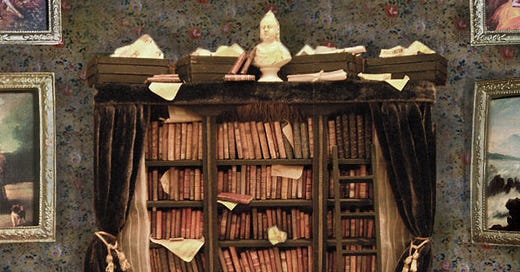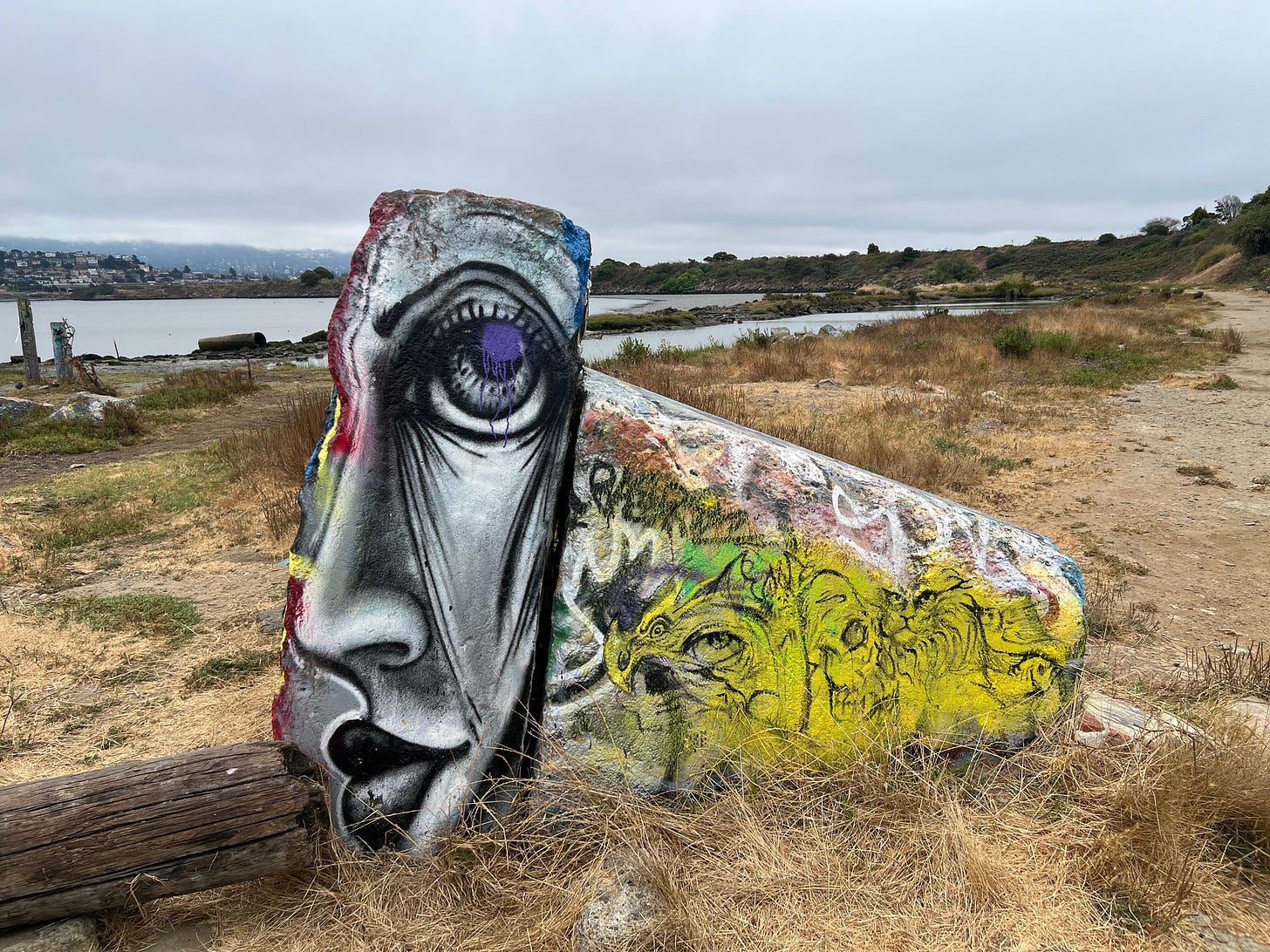One definition of being a writer is that you have to write 10,000 words to get 1,000 good words.
In fact, Karen Russell said that only ten percent of her rough draft makes it into her final draft. That’s a common percentage I’ve heard from many writers.
While much of the 90% that doesn’t make the cut is bad stuff, of course—part of the word vomiting, word swirling, word gushing that naturally goes into a first draft—some of that discarded prose contains gems we’ve worked hard to polish and shine. If you’re like me, you put it in a file called “Dump” or “Follies” or “Lost Children” (I’ve heard all three labels from writers), and you never open the file again.
One definition of being human: we save stuff. Since I’m back home in my mother’s house now, sorting through objects saved by several generations to get them ready for an estate sale, I’m pondering the value of saved objects—and saved words.
Most writers put their discards into Dump files because we have a tough time throwing out the words and sentences we’ve worked so hard on. So we stow them away, as if we’re going to use them again, just like those two spinning wheels in my mom’s attic that haven’t been used since the early 1900s. Or, a better analogy is the antique toy horse with the missing leg.
I often tell writers they shouldn’t open their Dump files again because I once did so, and then, lo and behold, I found sections I thought rang with promise, and then I tried to put the sections back into the novel I’d taken them out of, but … the reinsertion didn’t improve the novel, of course, no matter how worthy the prose.
Generally things are cut for a good reason. And then they are saved. Just because. And then they are forgotten.
I didn’t conceive that there could be other uses for this discarded prose—until now. What I’ve recently learned is that my castoffs have been quietly sitting there waiting for me on the Island of Forgotten Words after all of these years. Read on …
The archives project
In the accountability write-ins I lead each week (available via Zoom, so you can join no matter where you live), one of the writers passed on an inspirational exercise in Poets and Writers from the poet Courtney Faye Taylor:
“My archive: I look through rough drafts, notes, deserted passages, free writes. Revisiting old words means inviting past voices back to me, contending with their preoccupations and wonders. This ritual has spurred some of my most intimate writing. I love that this is a result of being in conversation with myself. I want to remain in that dialogue forever. That’s what my poetry requires.”
I’m in an interlude between projects, as I’ve written about in past newsletters, so I’m meandering, practicing the art of surrendering, practicing the art of writing without purpose or goals, writing simply to write.
As part of that meandering, I’ve started to open my old dump files and scroll through them in search of hidden treasures. I’ve been cutting and pasting the things that stand out to me and putting them in a separate file called “Junkyard Dogs.” I don’t know what I’ll do with them, if anything, but like Courtney Faye Taylor, I only want to be in conversation with myself and to see where that takes me.
I want to surrender to daydreaming while traipsing through my archives, to use the words to write a few lines of a poem or a few lines of a story, just to see how it feels.
I have a bevy of half-finished novels and half-started short stories that I might open up as well. What I’ve found from culling through the objects in my mom’s house is that every object carries a story. If my mom is in the room with me as I’m sorting, she’ll say, “Oh, that bowl came from my great-great grandmother, who used it to make her famous apple crumb cake on her farm in Appanoose County.”
Part of the “conversation” with these objects is now getting lost in time, though. The same thing can happen with our words. But the conversations can be recreated in a new setting, a new frame. We simply need to sift through our archives and cull through those discarded words to find gems that will take us to new places.
Call it a recycling movement. Call it cleaning out the attic. Call it self-appropriation. Call it a conversation. And, hopefully, call it art.
If you’re in an interlude like me, or if you’re mired in the muddy middle, or if you’re just mired, taking a break and walking through your archives might be just the meandering you need to find a new path.
Because a quote
“I get slightly obsessive about working in archives because you don't know what you're going to find. In fact, you don't know what you're looking for until you find it.”
—Antony Beevor
Accountability Write-ins!
I’m hosting an ongoing series of “accountability write-ins”—weekly gatherings to help people set goals, join a community of support, and … write—just write! (That’s the name of the class, in fact: “Write! Just Write!”).
Our sessions occur on Zoom, so you can join in no matter where you are.
Here’s how it works:
I start each session with a 5-minute talk on writing—some thoughts on developing a creative mindset, overcoming creative obstacles, or writing craft topics.
I provide an optional writing prompt, and …
We write!
At the end we do a check-in on our writing in breakout rooms and have a brief closing chat.
I’m available for book coaching and editing!
I’ve written extensively about creativity in numerous books and articles, talked with 300+ writers on my podcast, Write-minded, led the largest writing event in the world, National Novel Writing Month, founded 100 Word Story, and …. well, I’ve just immersed myself in all things writing for a lifetime, and I love, love, love working with writers to tell their stories.
Contact me to find out more about my one-on-one work with writers.
Because a photo
I love walking in the Albany Bulb. I love when junk is transformed into art, when people make things just because.







I take old text of mine and put it through the Lazarus Cut up and Remix Desk, letting it resort and give me fun juxtapositions that i then might use as lines, or as prompts. https://www.lazaruscorporation.co.uk/cutup
I like these recent in-between-projects posts.